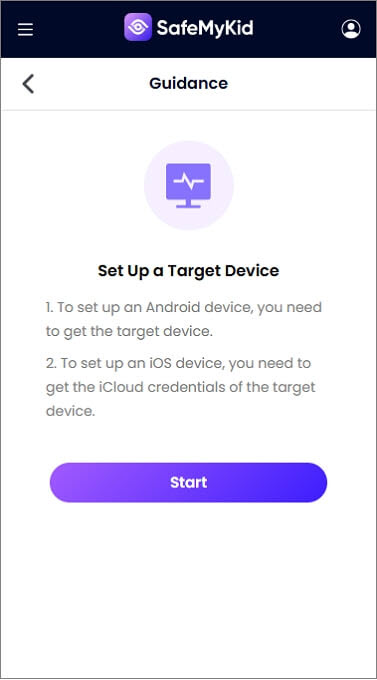How to Stop Cheating on Your Partner: 9 Effective Ways

Cheating is one of the most painful betrayals in a relationship. While society often labels cheaters as "bad people," the reality is more complex. So, how to stop cheating on your partner?
This guide will walk you through 9 actionable steps to help you identify the root causes of infidelity.

Studies suggest that one in five people admit to being unfaithful in a relationship. However, the real numbers could be higher, as many people hesitate to disclose such behavior.
What is Cheating in a Relationship?
Cheating is not always as straightforward as physical intimacy with someone outside your relationship. It can be emotional, digital, or even psychological. What one person considers betrayal, another might see as harmless interaction.

Common forms of infidelity include:
- Physical cheating: Engaging in sexual activity with someone else.
- Emotional cheating: Developing deep emotional bonds outside your relationship.
- Online infidelity: Sexting, flirting, or forming intimate connections over social media.
- Financial cheating: Hiding transactions or spending money on someone secretly.
Understanding what counts as cheating in your relationship is essential. If you and your partner have never set clear boundaries, now is the time to have that conversation.
Why Do People Cheat?
Before learning how to stop cheating, you need to understand why it happens. Cheating is rarely just about sex—it often stems from deeper emotional or psychological issues.
Some of the most common reasons include:
- Emotional dissatisfaction: Feeling unheard or disconnected from your partner.
- Low self-esteem: Seeking validation from outside relationships.
- Boredom: Lack of excitement in a long-term relationship.
- Opportunity and temptation: Situations that make cheating easier (such as social media or work friendships).
- Revenge: Getting back at a partner for past wrongdoings.
- Fear of commitment: Struggling with long-term monogamy.
Recognizing which of these apply to you is a crucial first step toward stopping infidelity.
9 Ways to Stop Cheating on Your Partner

If you are serious about stopping infidelity and rebuilding your relationship, these 9 steps will help you regain control.
1. Identify Why You Cheat
The first step in breaking the pattern of infidelity is understanding why you cheat. Many people cheat not because they want to hurt their partner, but because they are looking for something missing in their relationship or personal life.
Ask yourself:
- What am I trying to escape from?
- Is my cheating about my relationship, or is it a personal issue?
- Am I seeking excitement, validation, or revenge?
- Do I feel emotionally disconnected from my partner?
Without understanding the root cause, you won’t be able to break free from the temptation of cheating. Whether it’s boredom, resentment, or low self-esteem, identifying your triggers is the first step toward change.
2. Set Personal Boundaries
To prevent temptation, it is essential to set strict boundaries for yourself. Knowing what is off-limits will keep you from crossing the line.
Establish clear rules, such as:
- No late-night texting with past partners or flirtatious friends.
- No private meetings with people you feel emotionally vulnerable around.
- No deleting messages or hiding interactions from your partner.
- Avoiding situations that could lead to temptation, such as excessive drinking in social settings.
Small acts of dishonesty—such as hiding texts or engaging in flirtatious conversations—can quickly escalate into full-blown affairs. Creating firm boundaries eliminates the gray area that often leads to cheating.
3. End Any Existing Affairs Immediately
If you are currently involved in an affair, whether emotional or physical, it must end immediately. Keeping an affair going, even if you tell yourself it is harmless, will only continue to erode trust and prevent you from fully committing to your relationship.
Block all contact with the person, avoid places where you might see them, and be honest with yourself about why you allowed it to happen in the first place.
4. Be Honest With Your Partner
If you have cheated, honesty is the only way to begin rebuilding trust. Hiding the truth or continuing to lie will only make things worse when the truth inevitably comes out. When you confess, take full responsibility without blaming your partner.
Acknowledge the pain you have caused and express your commitment to change. Being transparent moving forward is crucial in rebuilding trust.
5. Stop Engaging in Micro-Cheating
Cheating does not always mean having a physical affair. Micro-cheating includes small acts of dishonesty, such as flirting, sending inappropriate messages, or maintaining secret emotional relationships.
These actions may seem harmless, but they are stepping stones to more significant betrayals. If you are doing something that you would not want your partner to find out about, then it is a behavior that needs to stop.
6. Fix What’s Missing in Your Relationship
If you find yourself seeking attention and excitement outside your relationship, it’s important to ask: What am I not getting from my current partner?
- Do I feel neglected?
- Am I lacking emotional connection?
- Is our sex life unsatisfying?
- Do I feel unappreciated or unheard?
Once you identify what’s missing, talk to your partner about how to improve your relationship together. Cheating is often a symptom of deeper relationship issues. Instead of seeking fulfillment elsewhere, work on your existing relationship.
7. Improve Communication
Lack of communication is one of the biggest contributors to infidelity. If you are not openly discussing your feelings, frustrations, and desires with your partner, misunderstandings and emotional distance can grow.
Make it a habit to check in with each other daily, express appreciation, and talk about any concerns before they become bigger problems. Strong communication builds a stronger relationship.
8. Avoid Tempting Situations
One of the most effective ways to stop cheating is to remove yourself from situations where temptation exists. If you know that drinking too much at a party might lead to poor decisions, set a limit. If you have an attraction to someone at work, minimize one-on-one interactions.
Be mindful of who you spend time with and what environments you put yourself in to avoid making regrettable choices.
9. Seek Professional Help
If you have struggled with repeated infidelity or self-sabotaging behaviors, therapy can help you uncover the deeper reasons behind your actions.
A therapist can help you identify patterns, work through past trauma, and develop healthier ways to handle emotional distress. Couples therapy can also be beneficial in rebuilding trust and strengthening your relationship.
How SafeMyKid Can Help Prevent Digital Infidelity

In today's digital age, many affairs begin through social media, messaging apps, or hidden online interactions. Cheating is no longer limited to physical encounters; digital infidelity has become just as common, with secret messages, dating app accounts, and inappropriate online relationships.
If you want to hold yourself accountable and prevent digital cheating, SafeMyKid can be a powerful tool to help maintain transparency and rebuild trust.
SafeMyKid is a discreet monitoring tool designed for individuals and couples who want to track online behavior, screen time, and communication to ensure accountability.
Originally developed for parental monitoring, SafeMyKid also serves as an effective way to keep digital interactions honest, allowing partners to build trust and eliminate secret online activities.
By using SafeMyKid, you can monitor digital communication, prevent hidden social media interactions, and maintain transparency within your relationship.
Whether you have been unfaithful in the past and want to regain your partner’s trust or simply want to establish a level of accountability, this tool provides a practical way to keep digital interactions in check.
How Can SafeMyKid Help Stop Digital Cheating?
SafeMyKid offers multiple features that help prevent digital infidelity and ensure that online behavior remains within the boundaries of a committed relationship. Here are some of the key benefits:
✔ 100% Undetectable: Runs in stealth mode without affecting phone performance.
✔ Real-Time Tracking: Provides live updates on online activity and conversations.
✔ Monitors More Than 56 Data Types: Covers everything from text messages and call logs to GPS locations.
✔ Blocks Harmful Content: Prevents access to inappropriate websites or apps.
✔ Helps Strengthen Relationships: Builds trust by maintaining digital honesty.
How to Monitor Cheating on Your Partner?
Setting up SafeMyKid to monitor online interactions is simple and discreet. Here’s how you can start using it:
Step 1. Sign up and create an account
Go to the SafeMyKid website and sign up using your email address. Choose the subscription plan that best fits your monitoring needs.

Step 2. Set up the SafeMyKid app
- For iPhone Users: No app installation is required. Simply log in using iCloud credentials to monitor online activity.
- For Android Users: Download and install the SafeMyKid app on the device you want to monitor. Follow the on-screen setup instructions.

Step 3. Monitor a cheating partner on the phone
Log in to your SafeMyKid dashboard from any device to access deleted messages, social media interactions, GPS updates, and call logs. Set up alerts for suspicious activity and track messages, calls, and browsing history in real time.

5 Common Causes of Infidelity & How to Prevent Them
Understanding why infidelity happens is the first step in preventing it. Various factors can contribute to cheating, but recognizing these issues early can help strengthen your relationship. Below, we break down five common causes of infidelity and actionable steps to prevent them.
| Cause of Infidelity | Description | Prevention Tips |
|---|---|---|
| Lack of Emotional Connection | Feeling unheard or emotionally distant from a partner | Prioritize deep conversations, check in emotionally, and show appreciation |
| Boredom & Routine | Relationships become predictable, leading to the temptation for excitement | Try new activities together, surprise each other, and keep intimacy alive |
| Low Self-Esteem | Seeking validation from external sources due to personal insecurities | Practice self-confidence, seek personal growth, and communicate openly |
| Opportunity & Temptation | Social media, work friendships, or travel create easy chances for cheating | Set personal boundaries, avoid risky situations, and stay accountable |
| Unresolved Relationship Issues | Arguments, resentment, or lack of effort lead to emotional disconnection | Address conflicts early, seek therapy if needed, and nurture trust |
How to Rebuild Intimacy After Infidelity?
Stopping infidelity requires more than just good intentions—it demands self-awareness, discipline, and a commitment to change. If you find yourself struggling with temptation, take proactive steps to reinforce your commitment.
- Recognize Your Triggers: Identify situations, emotions, or people that lead you toward infidelity and actively avoid them.
- Practice Self-Control: When temptation arises, remind yourself of the long-term consequences. Short-term pleasure isn’t worth the damage to your relationship.
- Commit to Transparency: Being open with your partner about your struggles can help you stay accountable. Consider setting boundaries together.
- Focus on Relationship Growth: Strengthen your bond with your partner by engaging in shared activities, open communication, and acts of appreciation.
- Seek Support: If breaking the habit feels overwhelming, counseling or therapy can provide guidance and strategies to help you stay faithful.
By making conscious choices and reinforcing your commitment, you can put an end to cheating and rebuild trust in your relationship.
FAQs About How to Stop Cheating in a Relationship
To wrap up this comprehensive guide, here are some of the most frequently asked questions about how to stop cheating in a relationship. These questions aim to clear up any doubts and help you make informed decisions when working toward honesty, commitment, and trust in your relationship.
1. Why do people cheat in relationships?
Cheating can stem from emotional dissatisfaction, lack of communication, personal insecurities, or external temptations. Some people cheat due to unresolved relationship conflicts, while others may seek validation outside their partnership.
2. Can a relationship survive after cheating?
Yes, but it requires effort from both partners. Rebuilding trust takes time, open communication, accountability, and often professional counseling. Couples who commit to repairing the relationship can move forward and rebuild a stronger bond.
3. How can I stop myself from cheating?
To stop cheating, identify your triggers, set clear personal boundaries, improve communication with your partner, and seek professional guidance if necessary. Focusing on emotional fulfillment within your relationship can also help prevent infidelity.
4. What is micro-cheating, and why is it harmful?
Micro-cheating involves small actions that blur the line between faithfulness and infidelity, such as flirting, secret texting, or maintaining emotional closeness with someone outside the relationship. Over time, micro-cheating can erode trust and lead to more significant betrayals.
5. Is emotional cheating as bad as physical cheating?
Emotional cheating can be just as damaging as physical cheating, if not more. Developing a deep emotional connection with someone outside your relationship can create distance between you and your partner, leading to broken trust and relationship instability.
Final Thoughts
If you are looking for a way how to stop cheating and maintain transparency in your relationship, SafeMyKid provides an effective solution. Whether you are trying to rebuild trust after infidelity or want to prevent online temptation, this tool can help keep your digital interactions honest.
Stopping cheating is not just about avoiding temptation—it is about making a conscious commitment to honesty, trust, and open communication. By using SafeMyKid as a tool for digital accountability, you can take an active step toward maintaining a faithful and committed relationship.


